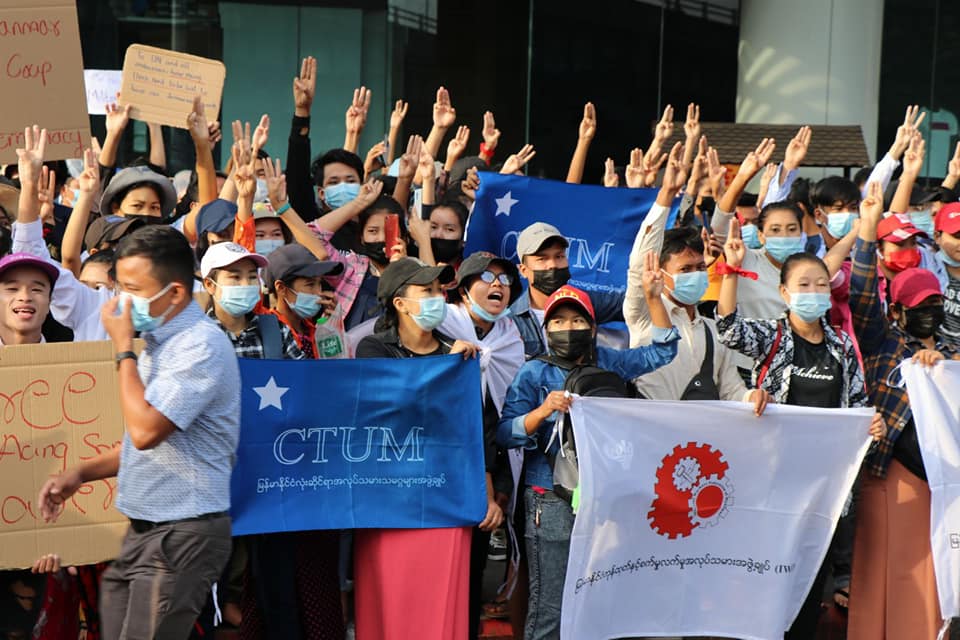Nurses, doctors and other health workers rallied in central Myanmar over the weekend, despite the government’s brutal repression against workers peacefully protesting for an end to the military coup launched on February 1.
Military and police have killed at least 249 people and arrested thousands, many of whom are subjected to torture. In February, the military arrested elected officials, including leader Aung San Suu Kyi, and established a ruling junta, declaring a one-year state of emergency, after which an election would be held.
Seeking a return to democratic governance, workers–women in particular–have taken a leading role in the protests, with the country’s 450,000 garment workers especially active in organizing civil disobedience actions and shutting down factories. They are asking international corporate fashion brands to cease doing business in Myanmar until democracy is restored.
Massive industrial factory zones outside Yangon are shuttered, bank employees and port workers have ceased work and other workers across Myanmar have not showed up to their jobs to starve the junta of financial support. (The actions are a hardship for workers who are going without pay. You can help sustain them by contributing to a union-supported campaign here.)
Workers Standing Strong despite Repression
Union leaders have been forced into hiding, and they report military checkpoints along routes out of Yangon where soldiers stop and search cars, looking for passengers who match photos of union leaders.
Workers say the military is widely using live ammunition against civilians. Images of tortured victims are circulating on the internet, as are videos of the military forcing civilians into degrading acts such as crawling in the streets or carrying sandbags until they collapse.
Yet unions refuse to back down and are planning massive demonstrations in coming days to carry on the Civil Disobedience Movement (CDM). Workers say they do not want a return to the repressive days of military rule during which the freedom to form unions and other civil liberties were repressed. Following the more than 20-year military dictatorship, which ended in 2011, workers rushed to create unions and improve their wages and working conditions while having a voice on the job.
Global Community Taking Steps, More Needed
The international community is taking some steps to sanction the junta, although CDM members say much more is needed. On Monday, U.S. Secretary of State Antony Blinken announced new sanctions against members of Myanmar’s military.
The International Trade Union Confederation (ITUC) and UNI Global union released the names of 23 people with close connections to the junta who should be subject to financial sanctions so coup leaders, already subject to financial sanctions, will not use them as proxies.
Meanwhile, the European Union is taking what Burma CampaignUK calls a “pathetically weak and ineffective” action, banning 11 military leaders from vacationing in EU member states, well short of the ban on business with the military Myanmar the CDM seeks.

